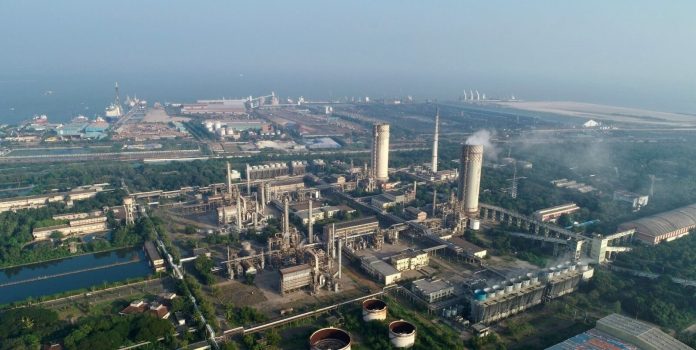The AM Green Kakinada Cluster has officially joined the World Economic Forum’s (WEF) “Transitioning Industrial Clusters Initiative”, a program designed to foster collaboration among co-located companies and public institutions.
The initiative seeks to create a shared vision that drives economic growth, boosts employment, and significantly reduces CO2e emissions.
By participating in the initiative, the AM Green Kakinada Cluster reinforces the importance of collective efforts in achieving global industrial decarbonization.
The cluster aims to build an integrated green industrial ecosystem, delivering economic, social, and environmental benefits for India.
Economic Boost and Job Creation
The Kakinada Cluster represents a significant investment of over $3 billion, expected to generate more than 10,000 direct and indirect jobs.
It will support key industries, including construction, equipment manufacturing, and housing, while contributing to local and national economic development.
Leadership Perspective
Anil Chalamalasetty, Chairman, AM Green emphasized, “Global decarbonisation solutions at scale and speed are the need of the day to bring in the new vision of global energy transition to life. We believe that this is a wonderful opportunity and a challenge that we have been working tirelessly for over the past many years”.
Chalamalasetty highlighted AM Green’s commitment to the WEF initiative. He stated the cluster’s goal of sharing knowledge, adopting best practices, and contributing to global decarbonization.
Welcomed by WEF
Roberto Bocca, Head of the Centre for Energy and Materials and Member of the Executive Committee at WEF, welcomed the AM Green Kakinada Cluster into the global network of 25 industrial clusters.
He noted the region’s potential to advance green ammonia and hydrogen production through Andhra Pradesh’s renewable resources.
“As part of the Transitioning Industrial Clusters community, AM Green Kakinada will have the opportunity to share insights and contribute to the collective progress in industrial decarbonization,” he added.
Pioneering Green Technologies
The Kakinada Cluster will begin operations in 2026, starting with a one MTPA green ammonia production capacity.
Key components include:
*Two GW electrolyzer manufacturing plant.
*Facilities for green molecule production, ensuring a robust supply chain.
*A commitment to Zero Emissions with projected emissions at 0 Mt CO2e during initial operations.
To ensure uninterrupted sustainability, the cluster will rely on 24/7 carbon-free energy powered by pumped storage projects.
Integrated utilities such as green steam, desalinated water, and effluent treatment facilities will enhance operational efficiency.
Global Decarbonization
AM Green aims to position India as a key player in the global energy transition through its pioneering green industrial cluster.
The cluster supports India’s decarbonization goals by producing essential green molecules. These include green ammonia, green hydrogen, sustainable aviation fuel, and green olefins.
The company’s ambitious green ammonia production target of five MTPA by 2030 equates to approximately 1 MTPA of green hydrogen.
This achievement represents:
- 20% of India’s target under the National Green Hydrogen Mission.
- 10% of Europe’s target for green hydrogen imports.
Additionally, AM Green is exploring capabilities for producing green caustic soda, e-methanol, olefins, and biofuels to decarbonize hard-to-abate industries.
Sustainable Future
AM Green is developing one of the world’s largest green ammonia platforms. The company is committed to driving India’s net-zero targets and contributing to a sustainable global future.
The Kakinada Cluster, as stated in the press release, is a testament to the country’s capability. It highlights India’s leadership in energy transition and industrial decarbonization efforts.

































